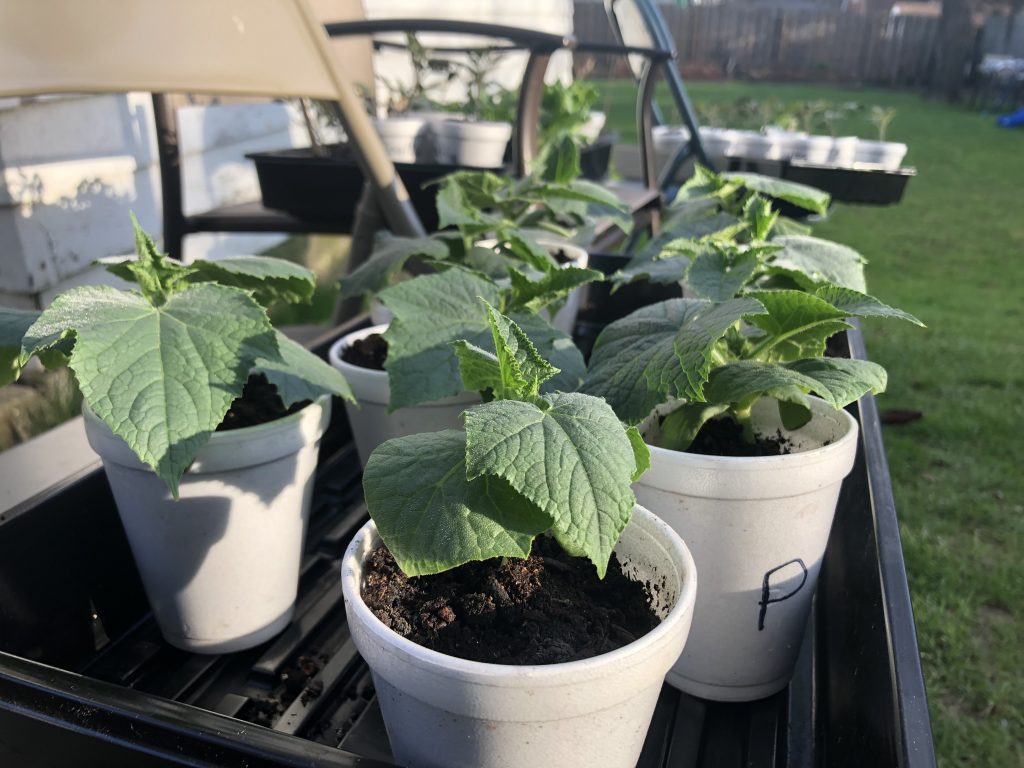How to Start a Garden During COVID-19 Closures
You’re at home, the weather’s nice, and the ground is fertile. Now may be the perfect time to start a garden, and WDET has some tips on how to do it.

With Governor Whitmer’s “shelter in place” order, and the risks associated with frequent trips to the grocery store, now could be the perfect time to try growing your own food.
Lindsay Pielack is the co-director at the gardening non-profit Keep Growing Detroit.
You Must Love This Planet
Otherwise, how did you get here? 101.9 WDET wants to connect with metro Detroiters who are concerned about climate change and want to take action. Sign-up to be contacted by our editorial team to learn more.
She tells WDET’s Annamarie Sysling that even more people than usual have been reaching out about starting their own gardens this year.
“I’ve had a lot of calls of people saying, ‘This is the year,’ and people saying, ‘It feels so important to have that skill right now, to grow your own food,” says Pielack.
“Being able to put your hands in the soil [and] get some fresh air can be extremely valuable for the whole family.” – Lindsay Pielack, Keep Growing Detroit
Pielack says “we hear so often from Garden Resource Program members that they can escape their daily stressors, and that’s an average year. So right now, while everyone is cooped up experiencing higher anxiety, being able to put your hands in the soil [and] get some fresh air can be extremely valuable for the whole family.”
Keep Growing Detroit offers a garden resource program for people with gardens in Detroit, Highland Park and Hamtramck.
The organization offers materials for both family and community gardens and is adding in some flexibility in terms of cost because of financial difficulty facing so many amid the coronavirus pandemic.
They also offer online classes every Saturday to give you a chance to learn about how to improve your gardening skills.
Click on the player above for a step-by-step conversation on how to start your own garden.
1. Start With Seeds You Already Have
For beginner gardeners, Pielack says her “best advice is to try it, but as tempting as it is don’t try to grow all your own food right [away]. I want to see people gardening for the long term,” says Pielack.
This is why she often advises new gardeners to start small with one or two vegetables that you know you already like to eat. She also notes that with the “Stay Home, Stay Safe,” order in effect, try to be flexible by working with some seeds that you might already have at home.
2. Find A Spot
As far as selecting the right spot in your yard, “when you’re growing vegetables, you need at least 6 to 8 hours of sunlight to grow. Look for a sunny spot where a tree won’t shade it, access to water and soil testing. But given the circumstances, use a container of raise up your beds,” says Pielack.
She adds that just because a spot looks sunny now, that doesn’t mean it will be when leaves start to come back as it gets warmer, so keep that in mind too!
3. What Can Go In The Ground In Early Spring?
Cold crops can go in the ground soon, spinach, radishes, lettuce and cilantro: “Those are all things you can plant by seed,” says Pielack.
She says that leafy greens and hearty herbs are a good choice because we usually only eat the leaves on those vegetables and leaves grow quickly.
“In the coming weeks you can plant transplants [plants that were started in small containers in doors] of cold crops like cabbage, broccoli and kale and those are all things you can get in the ground when you can work the soil,” says Pielack.
4. Can I Use Old Seeds?
Short answer: It depends on what you’re growing.
If it’s lettuce for instance, you can plant more seeds in a row than what it says on the seed packet.
“Expect a lower germination of seeds from past years and once they come up you can thin them,” says Pielack, who points to spinach and other dark leafy greens as other viable options that “are pretty forgiving in terms of seed viability.”
